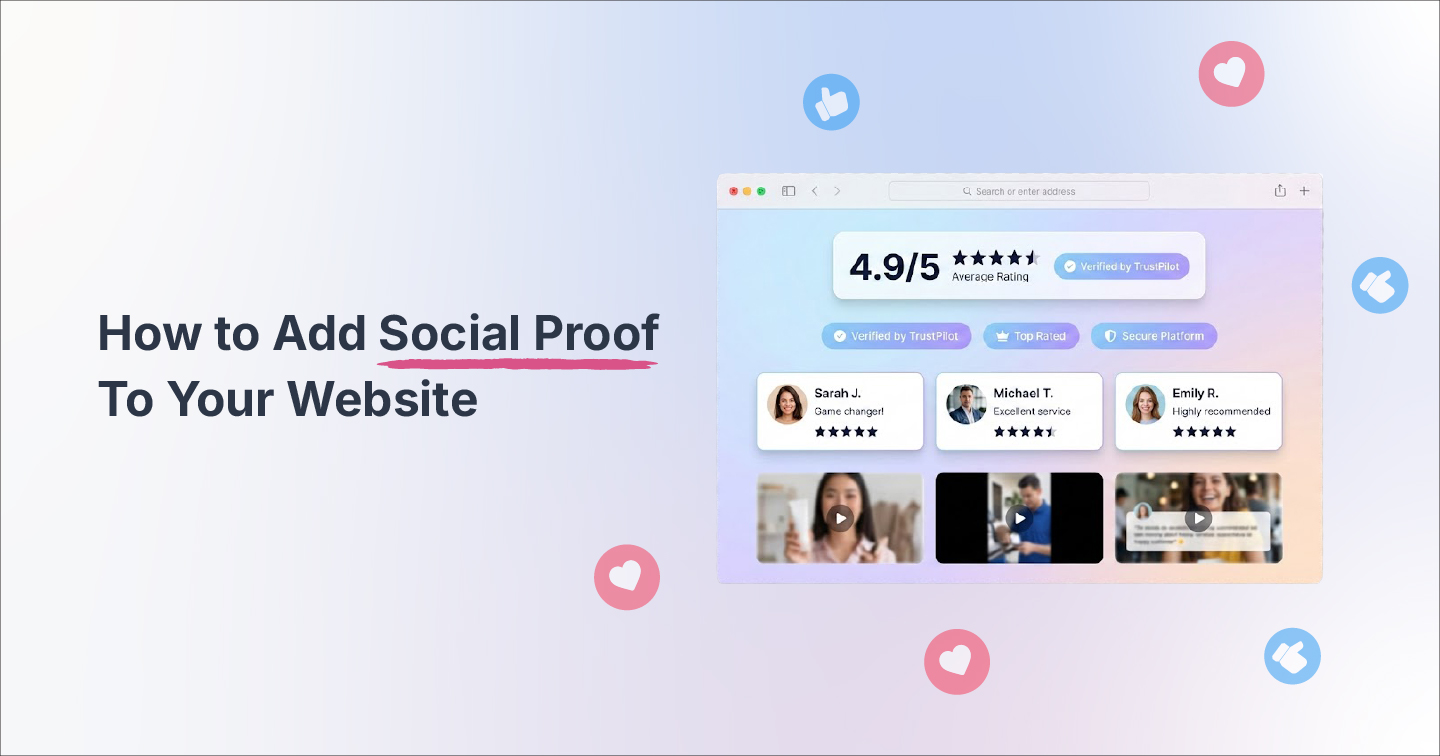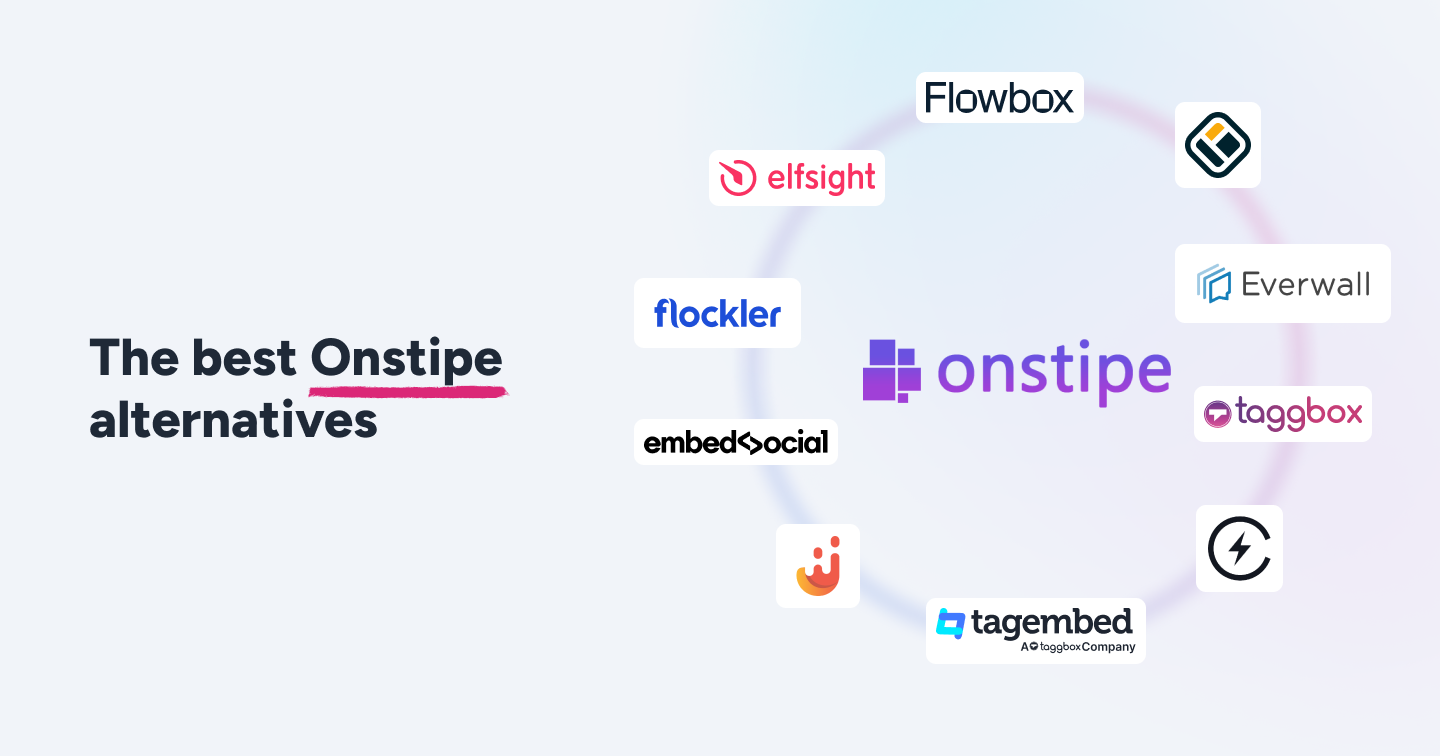Summary
- Social proof is the positive opinions of actual customers about your products, and integrating them on your website makes your brand more credible.
- Social proof helps your potential customers trust your products and speed up their purchase decisions.
- There are more than 25 types of social proof to add to a website, including reviews, testimonials, social walls, influencers' posts, case studies, trust badges, and certificates.
- Use a social media aggregator tool like Flockler to embed social feeds from over 13 social and content platforms.
A website is often the first point of contact in your customer journey. The more meaningful their website experience is, the higher the chances are that visitors will remember your brand.
Social proof is one such element that makes your website instantly credible and helps turn visitors into confident buyers.
The psychology of it is simple: people trust other people's recommendations because they feel more genuine and authentic.
Adding social proof on the homepage encourages visitors to explore your products, while social proof on product pages brings them closer to making a purchase.
In this blog, you will learn more about social proof, how to add it to your website, and over 25 types of social proof.
What is social proof?
Social proof is a psychological principle in which people look to the actions, opinions, or experiences of others to decide what to do.
In marketing, it means that when people see others trust, use, or recommend a brand, they are more likely to buy from it.
Some of the most common types of social proof include reviews, testimonials, user-generated content, influencer posts, case studies, badges, and certificates.
What is social proof theory, and why is it important for businesses?
People trust people's recommendations more than ads, claims, and rewards.
When a potential customer lands on your product page, they wish to make the right choice.
Social proof, such as reviews, testimonials, and UGC, makes them feel more familiar with your brand and assures them that the purchase is of low risk.
This establishes an emotional connection with your brand.
Humans are also prone to taking shortcuts and procrastinating, which drains their mental energy.
Social proof saves your customers’ time and effort as they establish your product's credibility and reliability, making it a quick choice for them.
This also helps businesses stand out in crowded markets, as customers feel a sense of belonging before they make a choice.
25+ social proof examples you can add to your website in 2026
1. Customer reviews
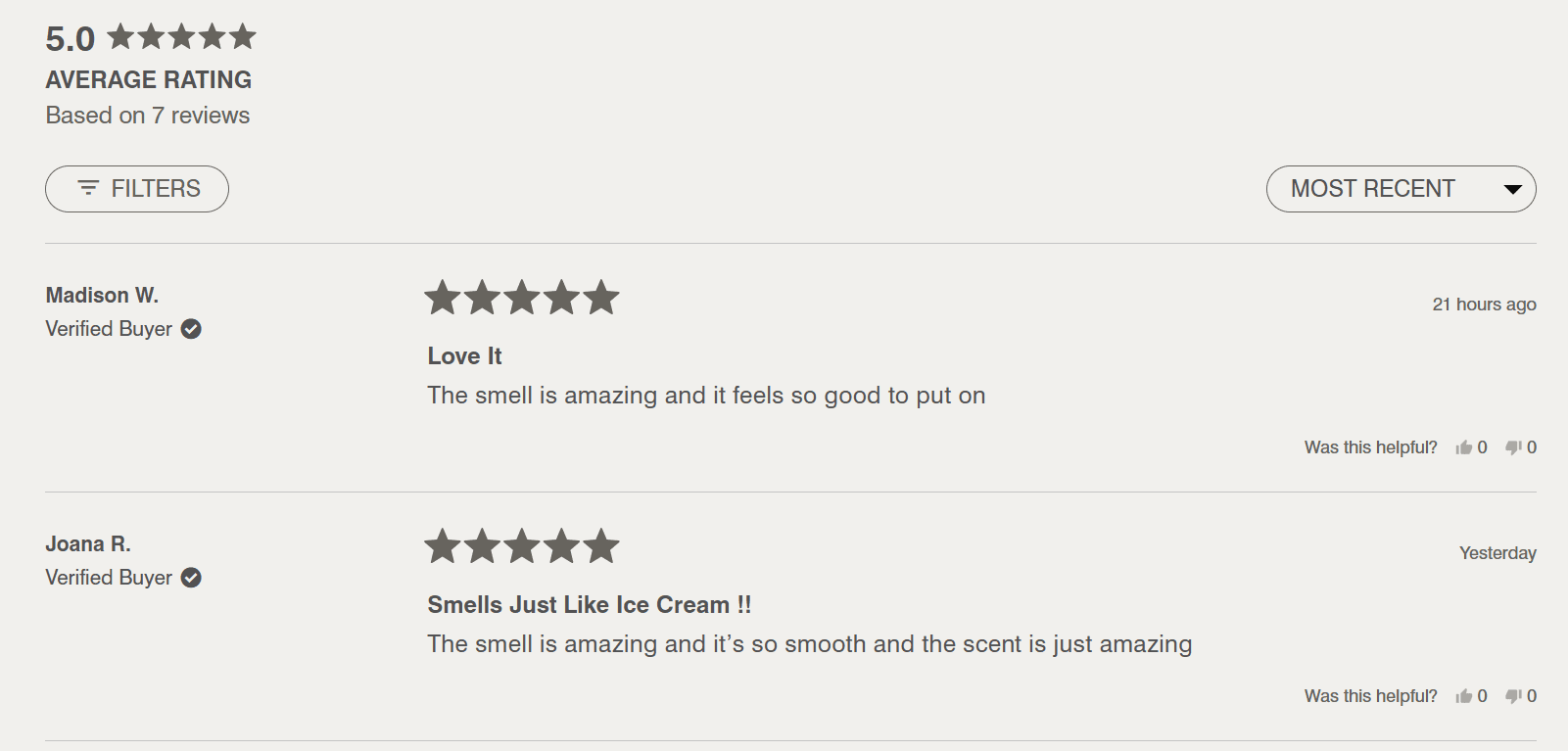
Customer reviews are text-written experiences shared by your actual users via post-purchase emails, SMS review requests, on-site review widgets, and social media comments.
These reviews help potential customers feel confident because they see real people benefiting from the product before making a purchase.
Businesses must display reviews on product pages, Google search results, and social media.
2. Star ratings
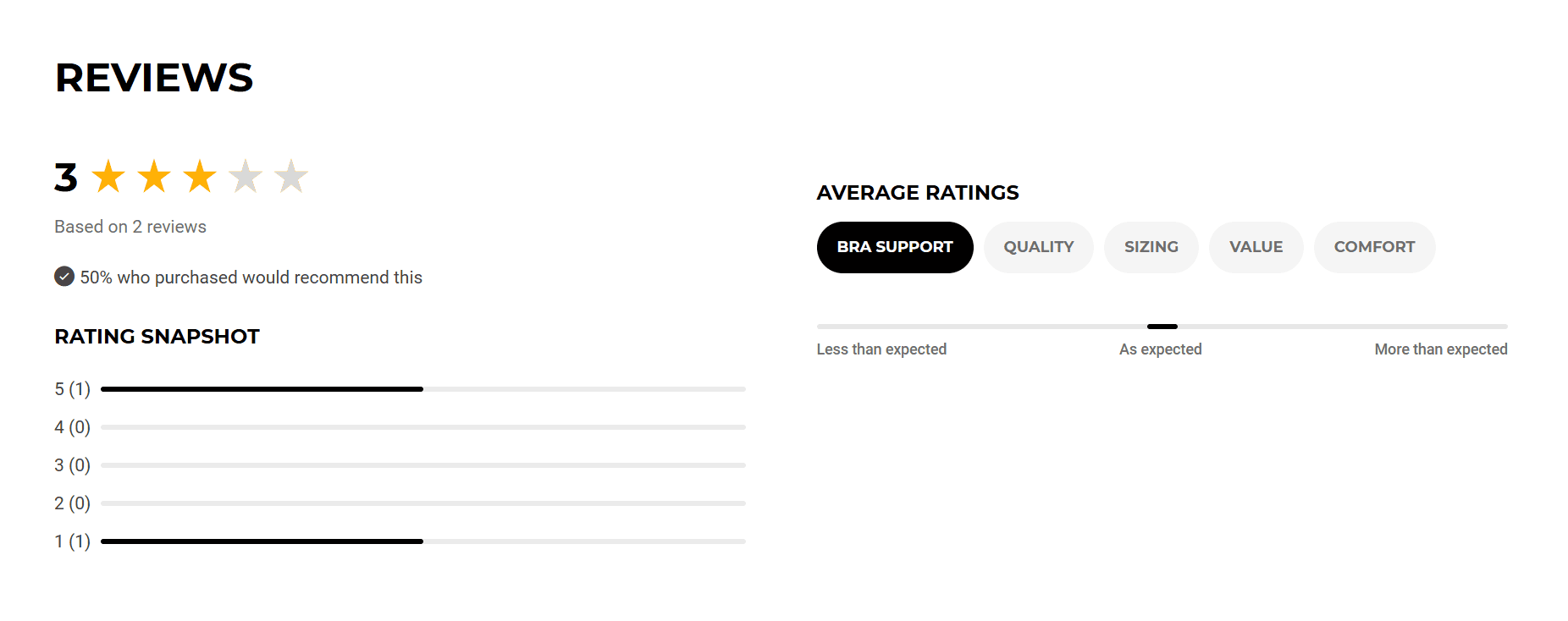
Star ratings are numeric scores customers give based on their experience with your products. These ratings are made out of five stars.
More customers participate in star ratings because the process is quick and easy. They also create a fast impression on future prospects without needing long explanations.
Star ratings are integrated on product pages, Google listings, review widgets, and app or store pages.
3. Testimonials
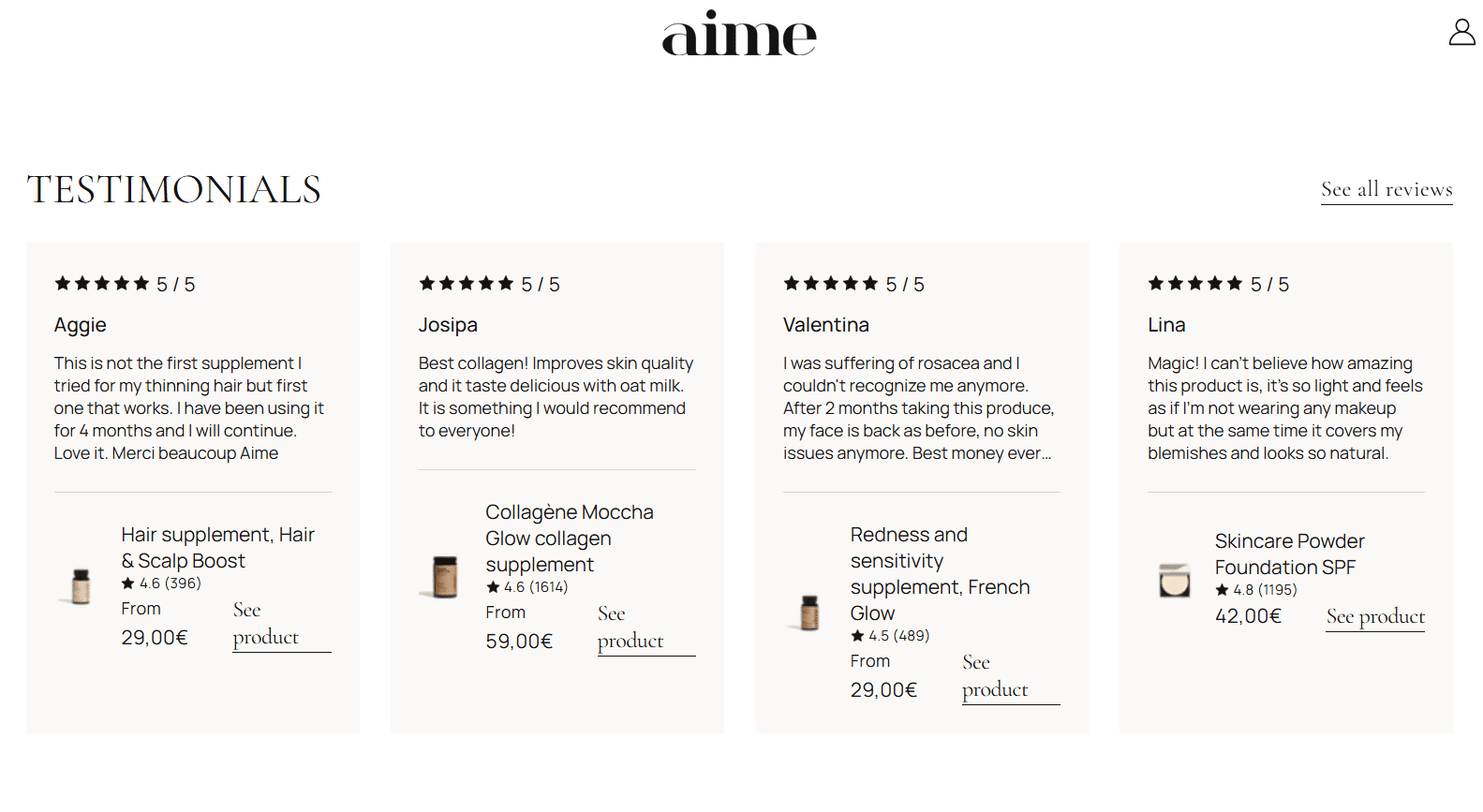
Testimonials are extended reviews with emotional statements from satisfied customers that highlight specific benefits they experienced.
Brands usually collect testimonials directly through customer outreach, interviews, or feedback forms and then edit them for clarity and impact.
Businesses commonly place testimonials on landing pages, homepages, sales pages, and case-study sections to boost conversion.
4. Case studies
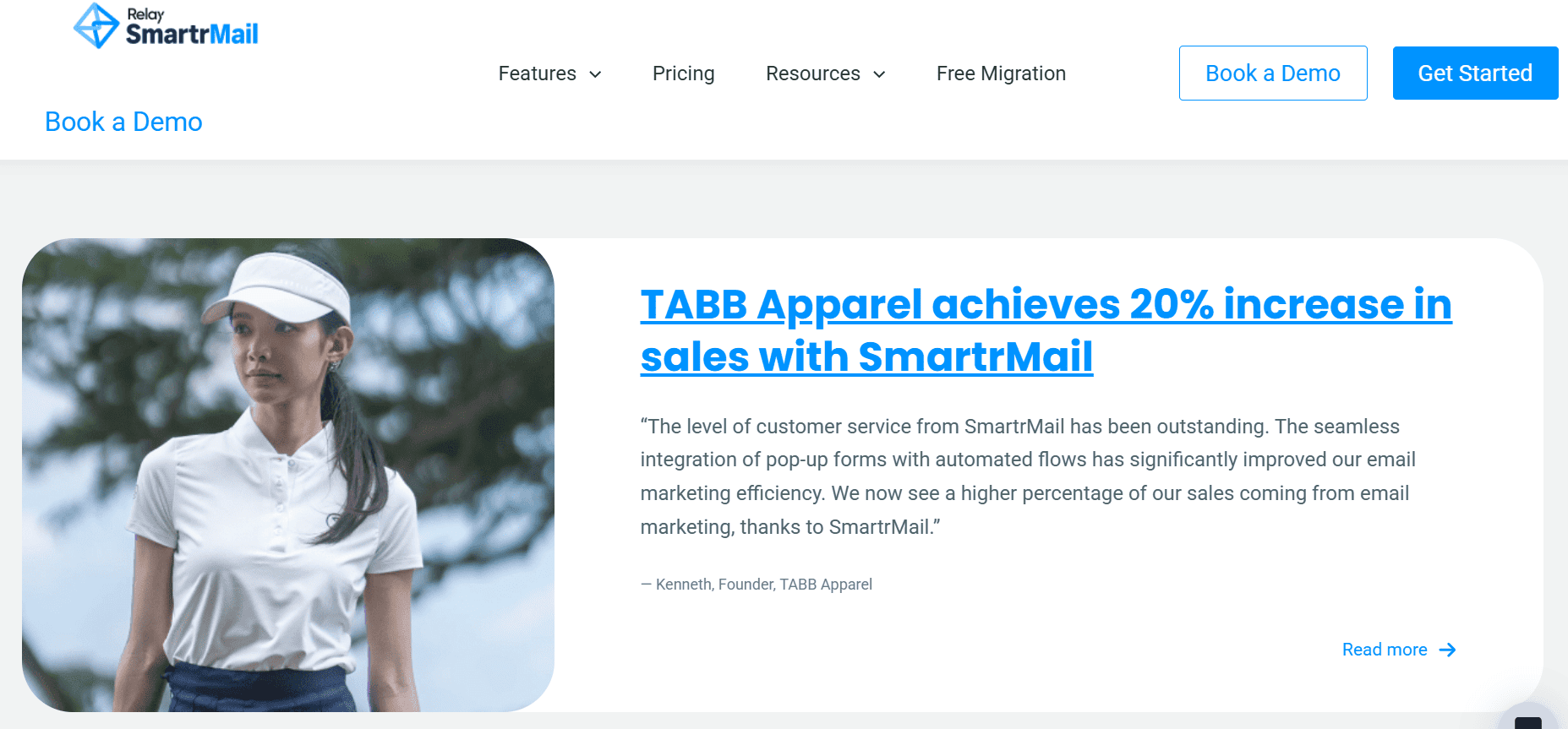
Case studies are in-depth narratives that explain how a customer used a product or service to achieve measurable results.
They include context, the challenge, the implemented solution, and outcomes, with numbers, timelines, and metrics.
Case studies are typically created after interviewing customers and analyzing performance data, making them powerful proof for B2B decisions.
5. User-generated content (UGC)
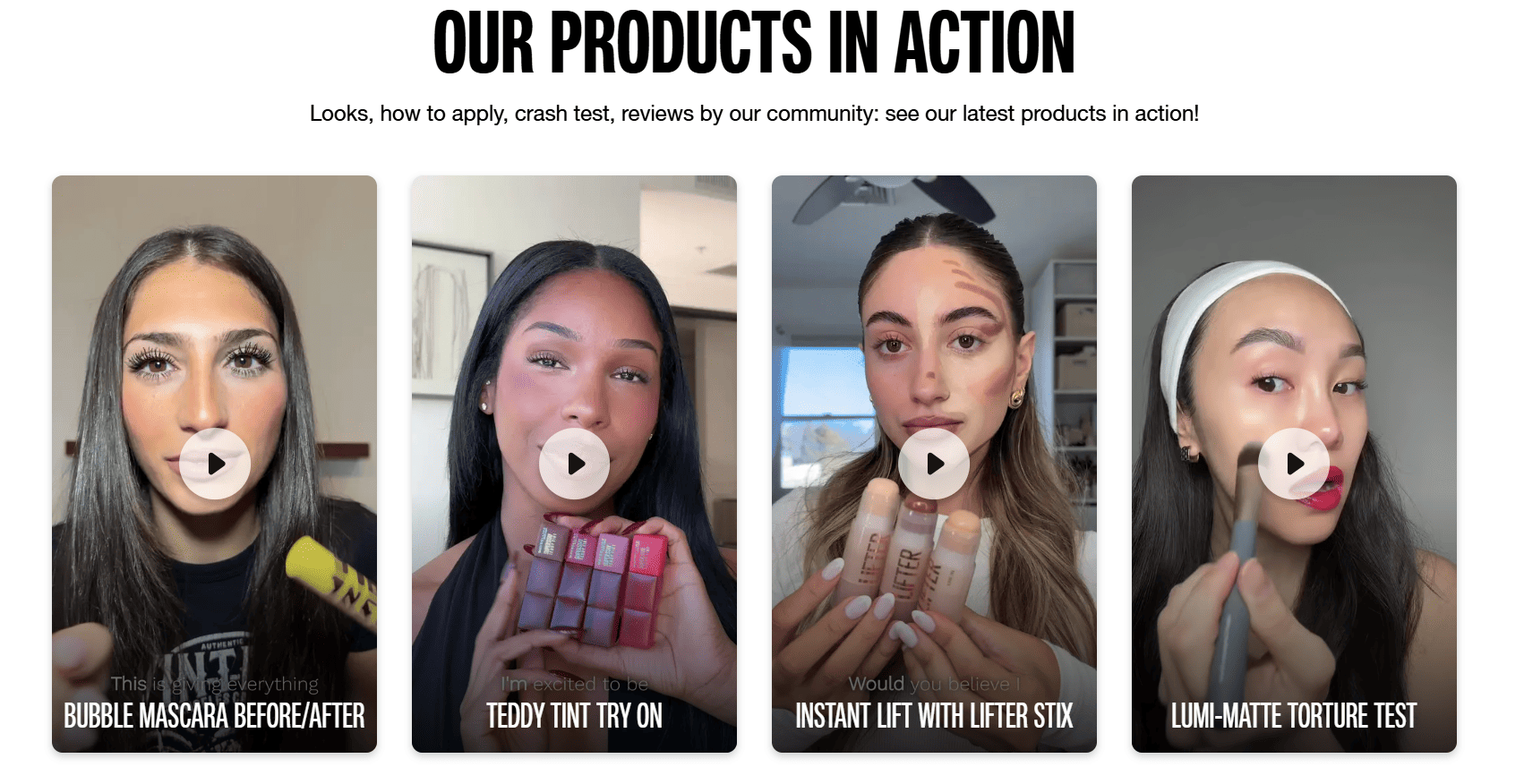
User-generated content includes photos, videos, social posts, and reviews created organically by real customers.
UGC is collected via social listening, branded hashtags, contests, and by encouraging customers to share their experiences. Because it feels authentic and relatable, UGC helps prospects imagine using the product themselves.
Brands embed UGC on websites, at events, in emails and blogs, and on retail store screens.
6. Hashtag campaigns
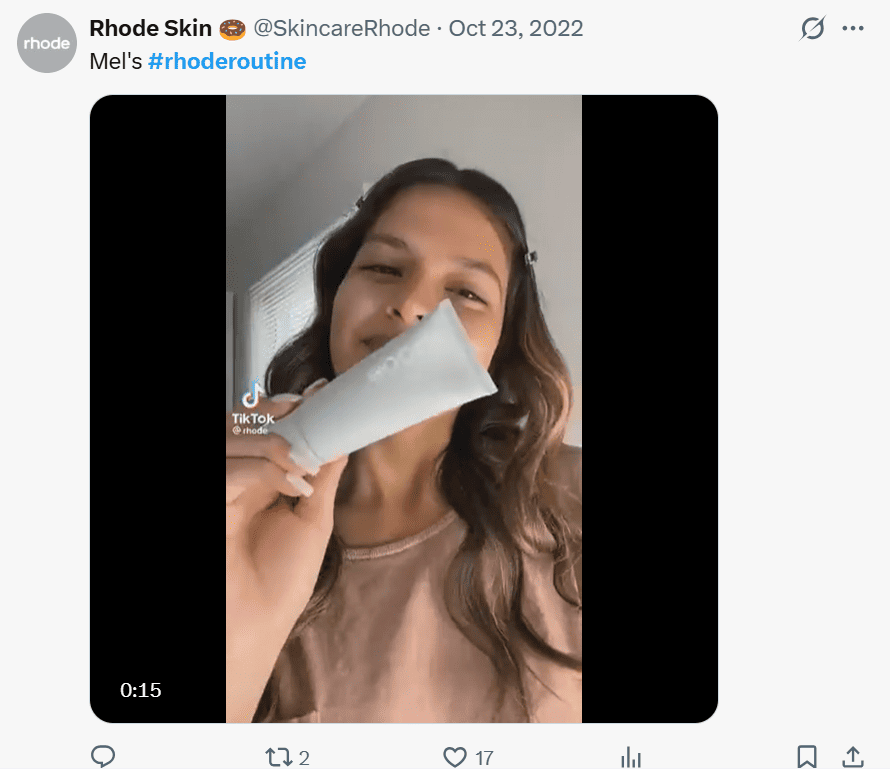
Hashtag campaigns are when brands choose a relevant hashtag and make a social media campaign around it.
Customers actively share their experiences or content using the same hashtag, which signals popularity and strong community engagement.
Brands can display hashtag campaign content on websites, at events, and on retail display screens to encourage more customers to join the conversation.
7. Influencer endorsements
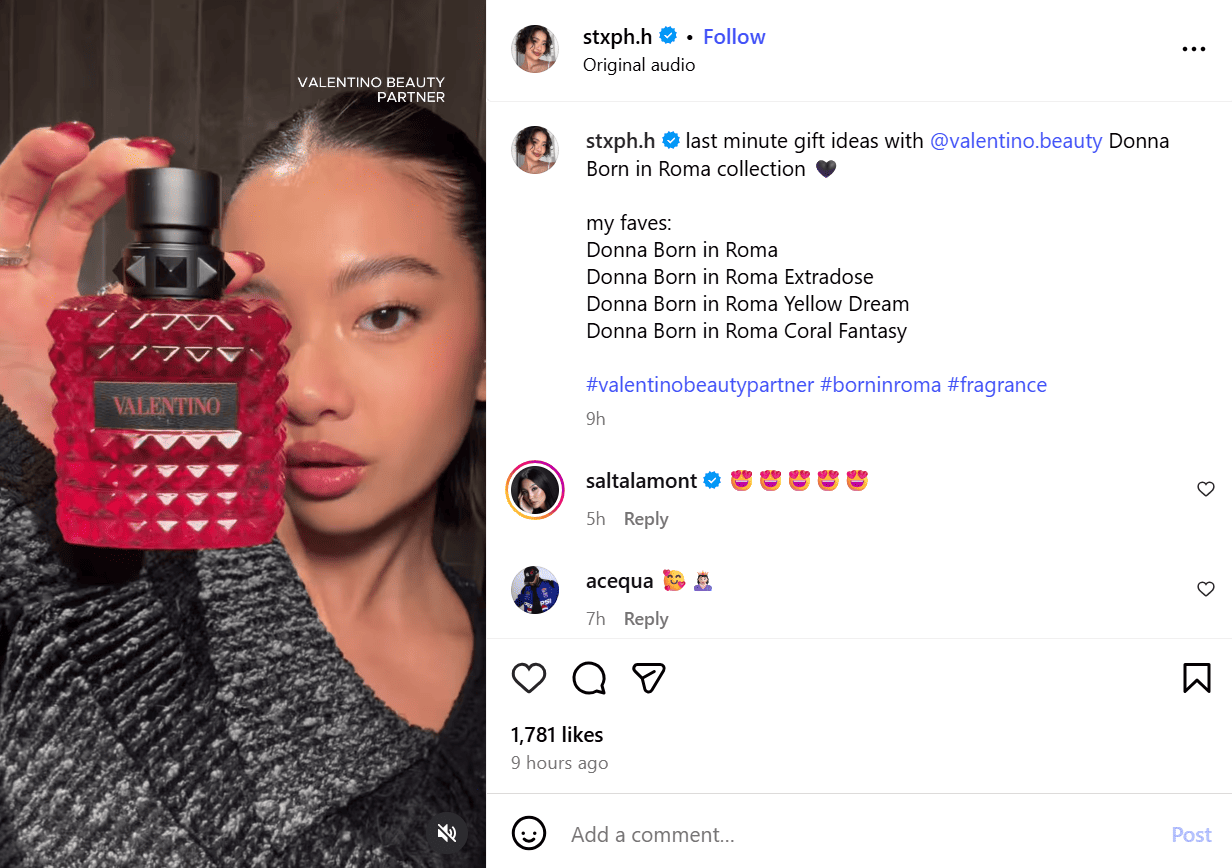
Influencer endorsements are recommendations from creators with a trusted, loyal community and a specific audience or niche.
Influencer collaborations establish credibility and can target precise customer segments. Brands partner with influencers through sponsored posts, affiliate programs, or collaborations.
These endorsements appear on social platforms, product pages, and ads.
8. Social media walls
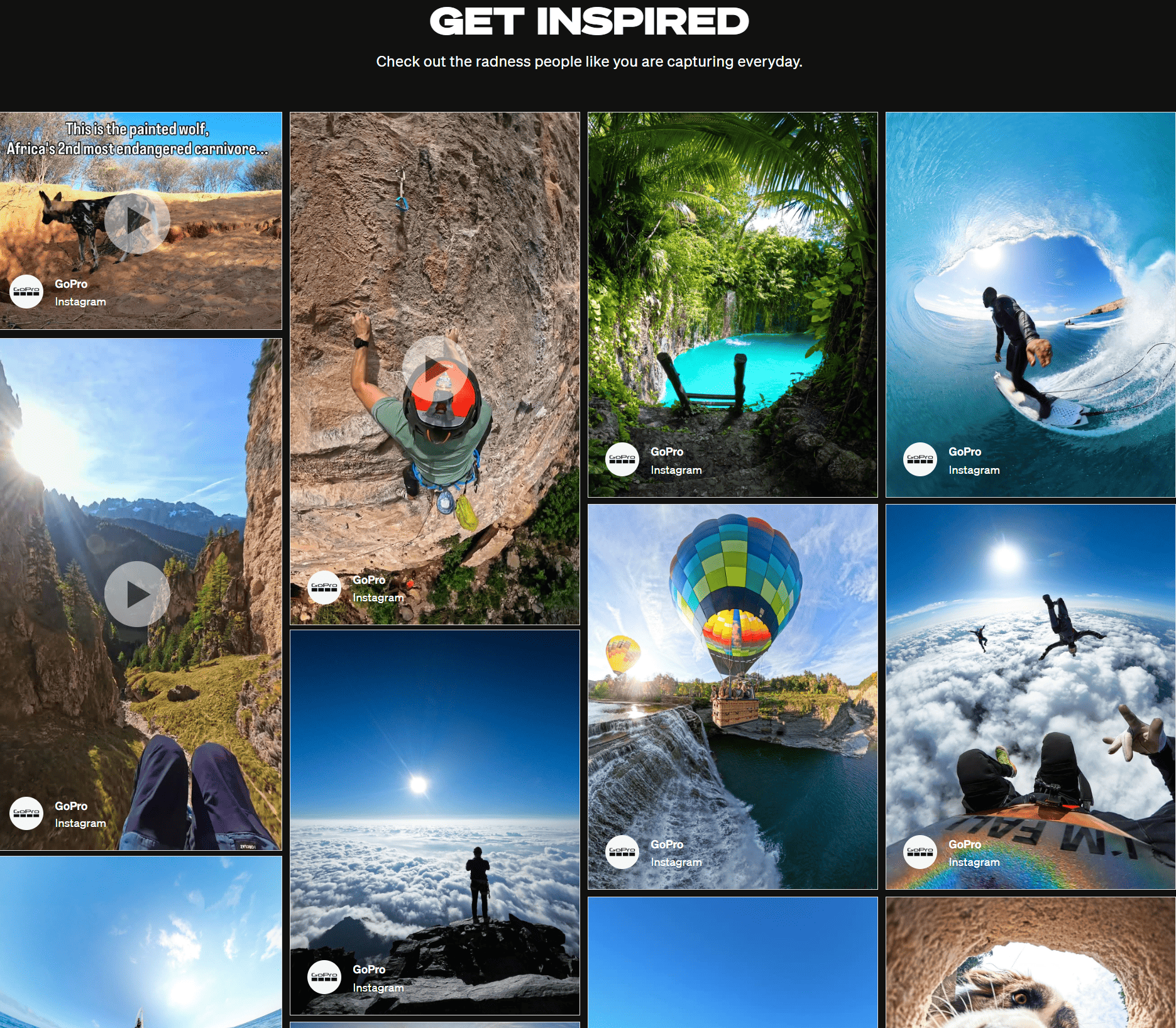
Social media walls display real-time feeds from multiple social platforms in a single unified wall. These walls often highlight user-generated content (UGC), branded posts, and hashtag campaign entries.
They help potential customers see active engagement and real stories shared by your community.
Brands place social media walls on homepages, event screens, landing pages, in-store displays, and product pages to create a dynamic, interactive, and social-proof-driven experience.
9. Social sharing buttons
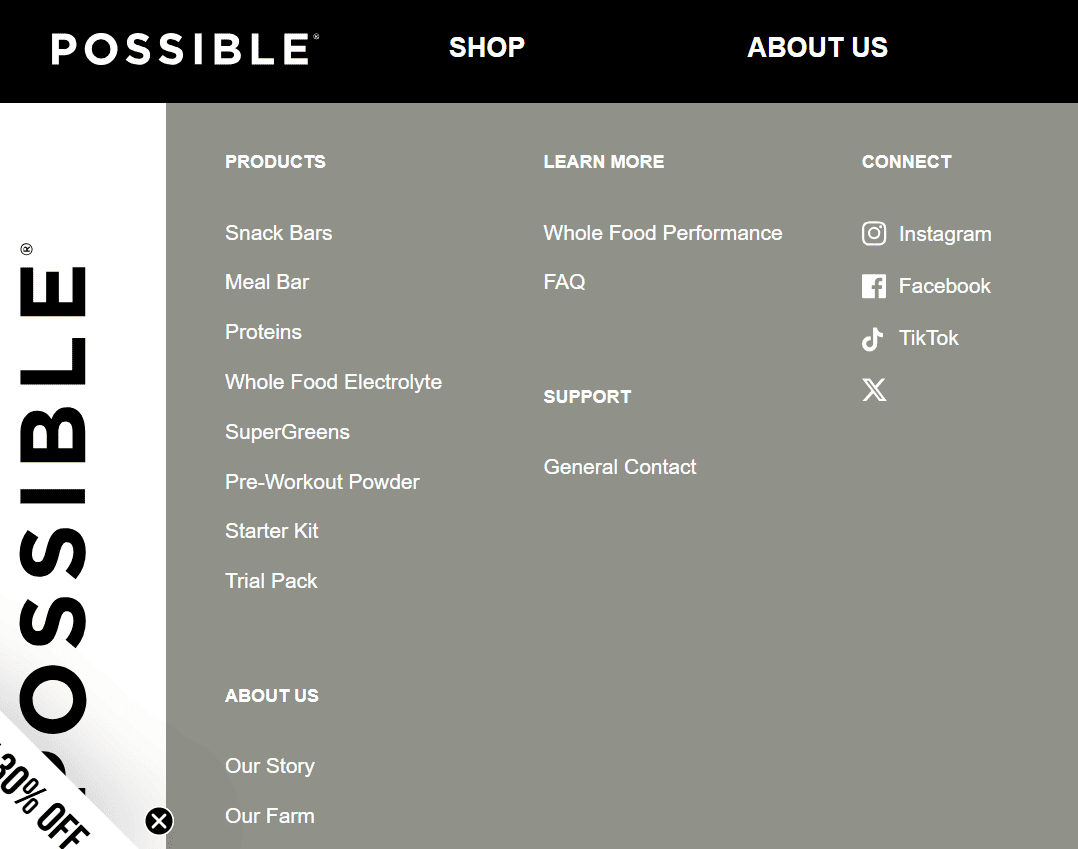
Social sharing buttons are small icons on webpages that let visitors instantly share products, articles, or offers on platforms like Instagram, Facebook, LinkedIn, Pinterest, and X (Twitter).
These buttons help potential customers discover what others are sharing and boost your brand's organic visibility.
Brands add social sharing buttons on product pages, blog posts, landing pages, and checkout thank-you pages to boost reach and let customers easily promote content with a single click.
10. Celebrity endorsements

Celebrity endorsements are public recommendations from well-known personalities that give a brand an aspirational appeal and broad visibility.
Brands secure celebrity endorsements via partnerships, ambassadorships, or paid campaigns and often combine them with creative advertising.
Celebrity endorsements are displayed in advertising (TV, digital, OOH), on product pages, in press releases, and in hero sections on websites to signal mainstream acceptance.
11. Social media mentions

Real users on platforms like Instagram, X (Twitter), TikTok, and Facebook make organic tags, comments, shoutouts, or brand references, which are known as social media mentions.
These mentions help potential customers see active conversations around your brand, making it feel more popular, trusted, and relevant.
Businesses must highlight social media mentions on social walls, homepages, product pages, and campaign landing pages.
12. Social media followers & engagement
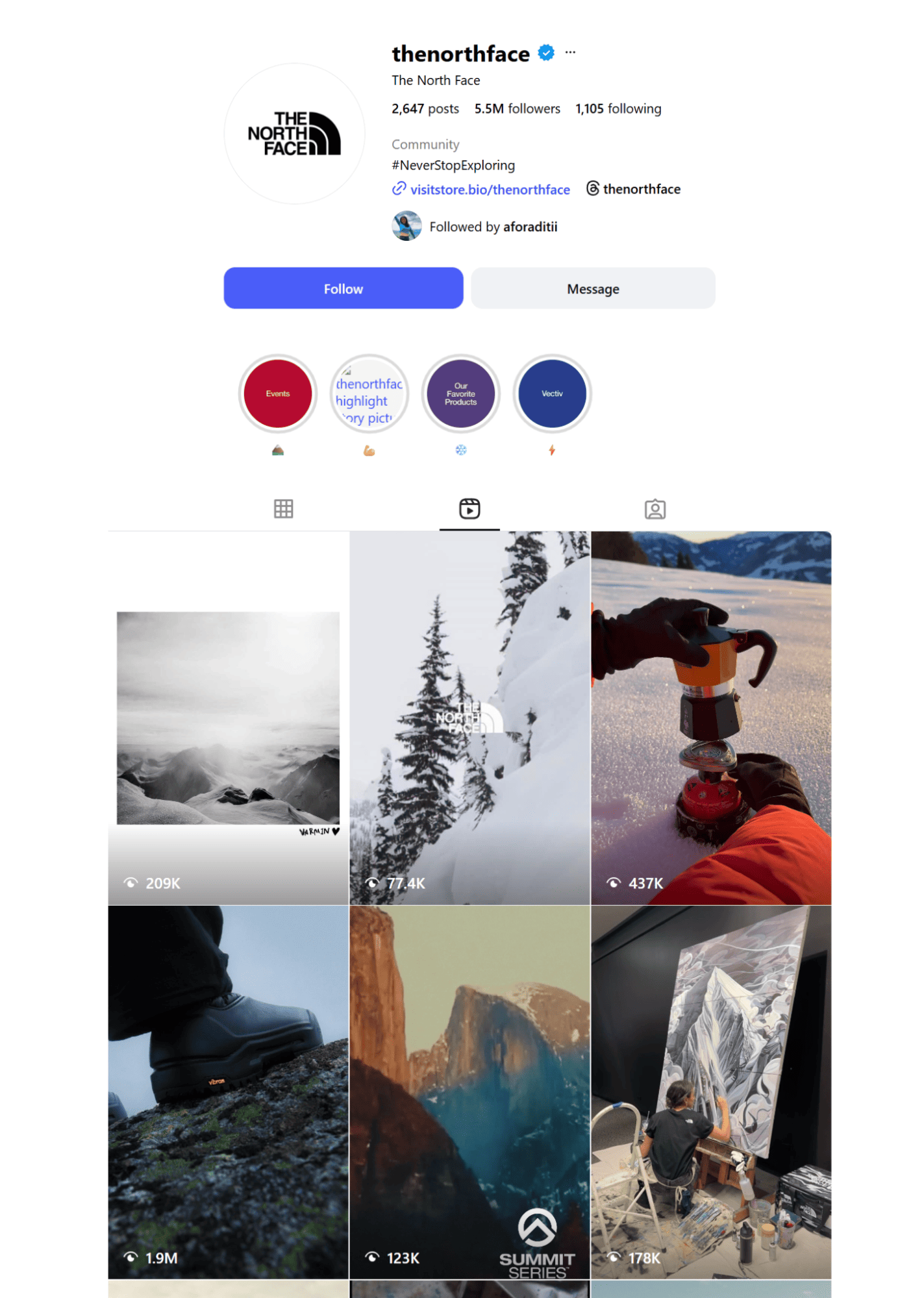
Social media followers and engagement represent the number of people who follow your brand and interact through likes, comments, shares, and saves.
A strong follower base and high engagement signal credibility, showing potential customers that your brand is active, authentic, and valued by a community.
Businesses must highlight follower counts and engagement metrics on landing pages, brand bios, website footers, and marketing materials.
13. Trust badges & certifications
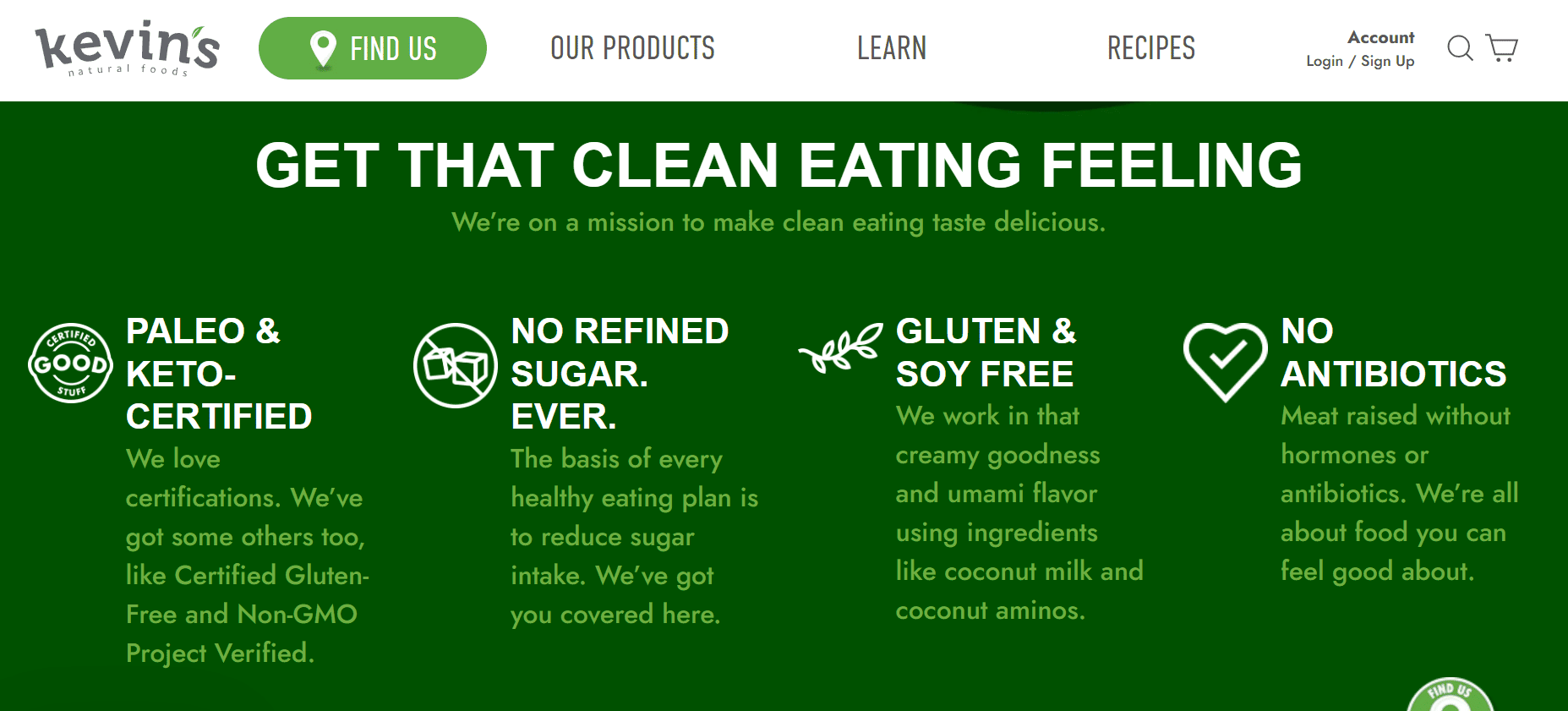
Trust badges and certifications are official symbols that verify your brand meets industry standards and compliance guidelines, such as SSL-secured checkout, FDA approval, ISO certifications, or Shopify partner badges.
These badges help customers feel safe and assured when buying, especially during checkout, by validating the brand’s reliability and commitment to quality.
Businesses must place trust badges on checkout pages, product pages, landing pages, and email footers.
14. Expert reviews

Expert reviews are evaluations written by industry professionals or niche experts who test and analyze your product.
These reviews matter because shoppers view experts as credible authorities, making their validation stronger than regular customer feedback.
Businesses must display expert reviews on landing pages, product pages, press sections, and comparison pages.
15. Media mentions (Press Features)
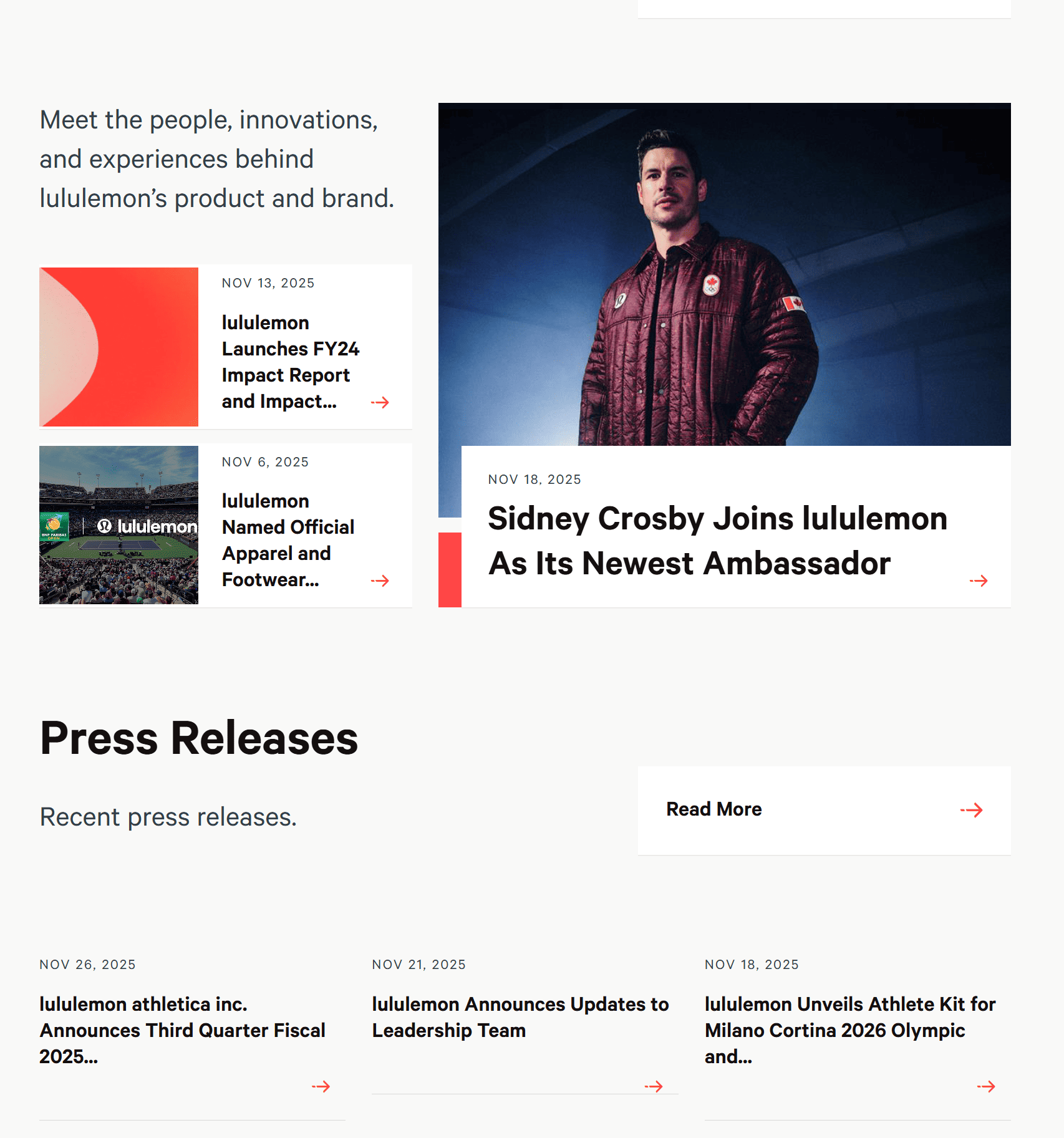
Media mentions are features, articles, or spotlights your brand receives from newspapers, magazines, TV channels, or well-known online publications.
These press features build authority because customers trust established media outlets, making your brand appear more reputable and widely recognized.
Businesses must showcase media mentions on homepages, “As Seen In” sections, product pages, and PR or press pages.
16. “As seen on” logos
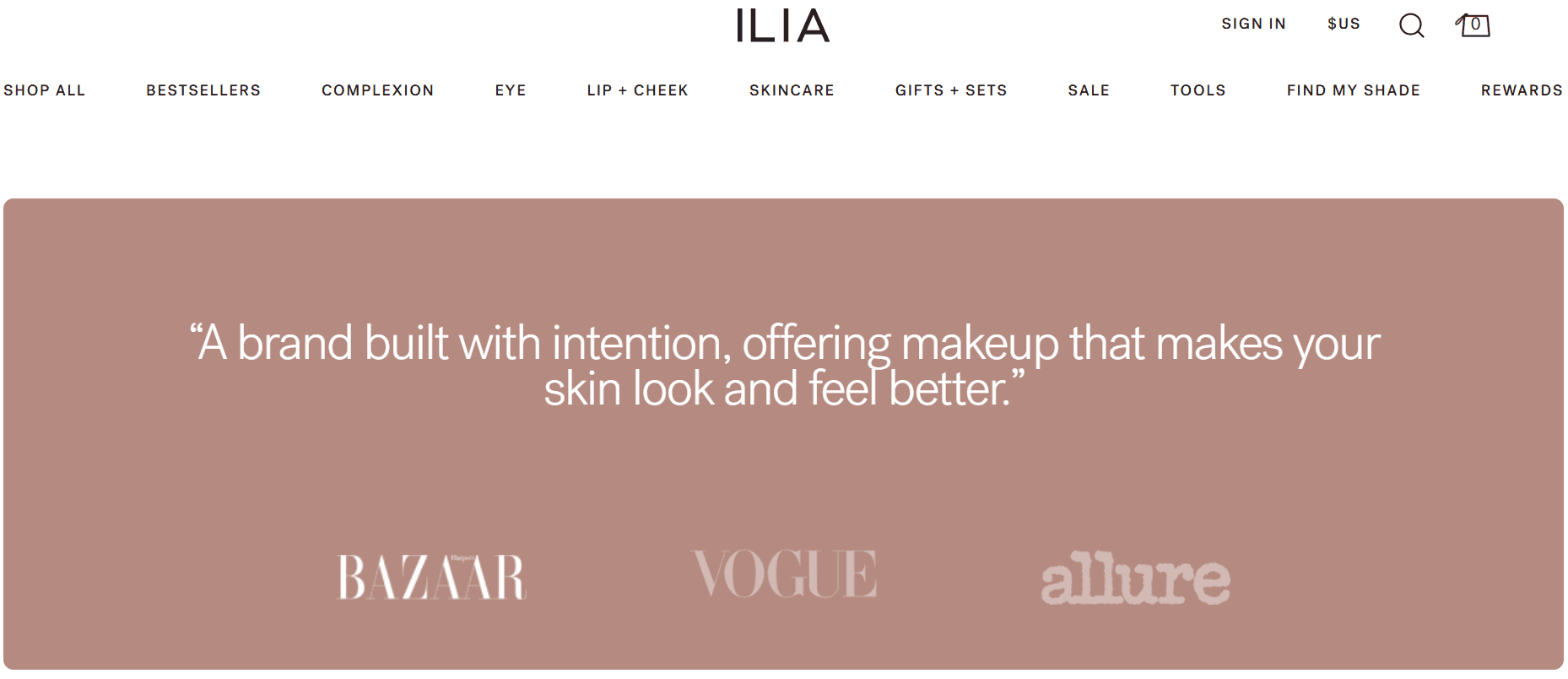
“As Seen On” logos are visual trust markers that show your brand has been featured or mentioned by well-known publications, media outlets, or industry platforms.
These logos act as instant credibility boosters because customers recognize and trust popular media brands.
Businesses typically display “As Seen On” logos on homepages, landing pages, hero sections, and product pages to build trust at first glance.
17. Customer count/popularity statistics
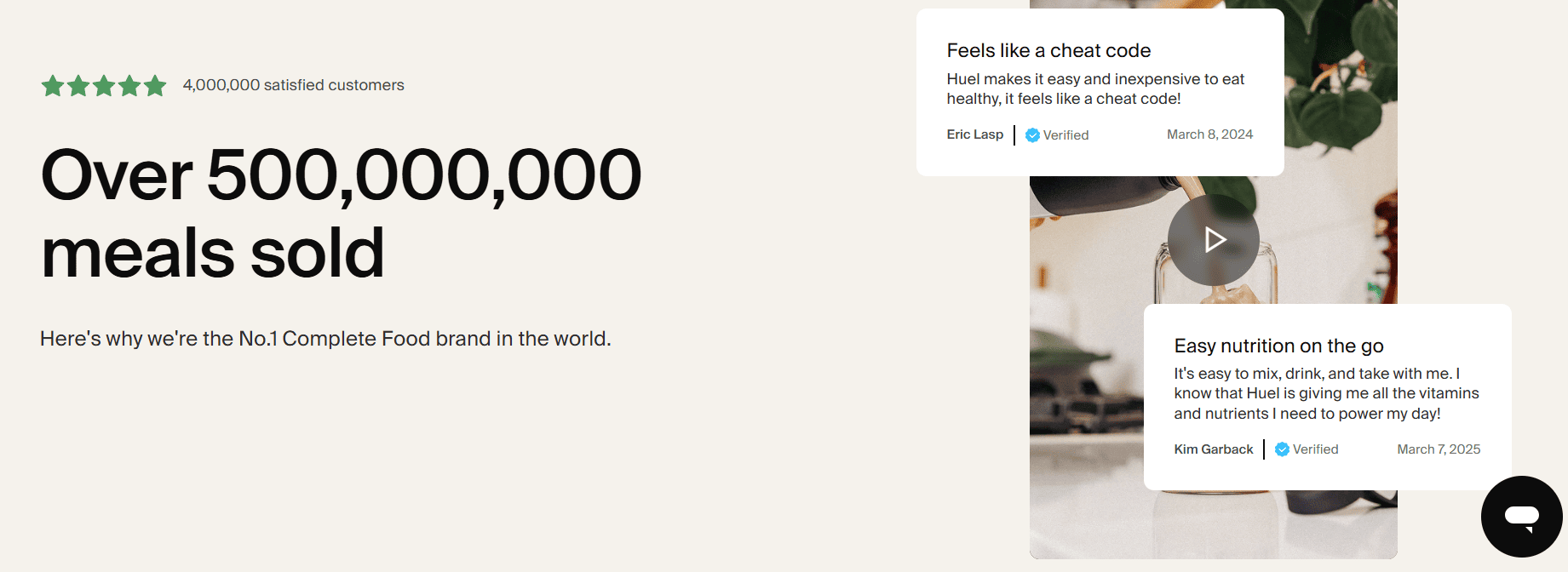
Customer count or popularity stats highlight how many people use, trust, or purchase from your brand. Examples include statements like “Trusted by 50,000+ customers” or “Over 2M units sold.”
These stats work because they signal widespread trust and adoption, making new visitors feel comfortable choosing your brand over others.
Brands often showcase these numbers on homepages or product pages to reinforce credibility and social acceptance.
18. Real-time notifications (live social proof popups)
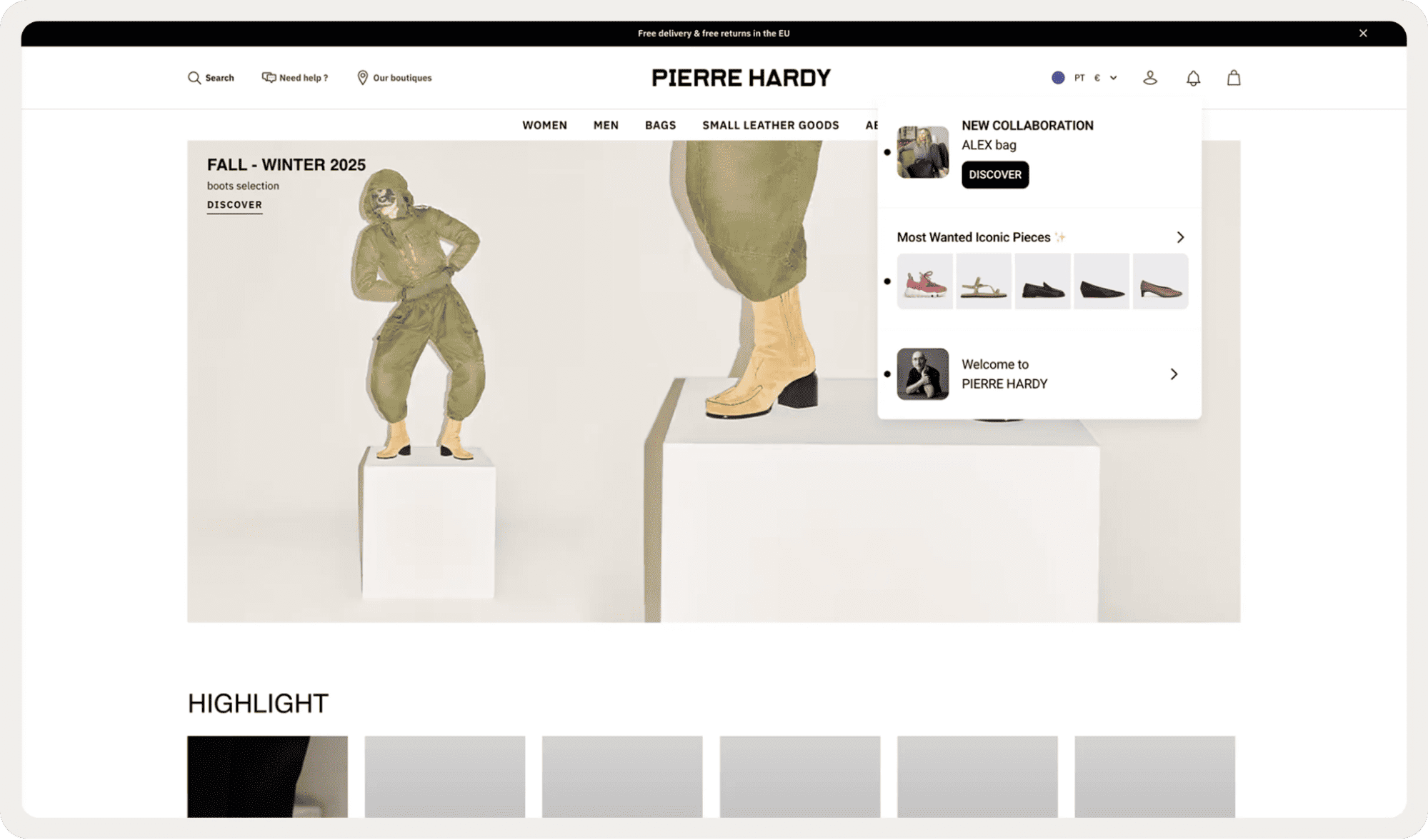
Real-time notifications are small pop-ups that display recent customer activity, such as a purchase, sign-up, or view of a specific item.
These notifications create urgency, show demand, and reassure visitors that others are actively interacting with your brand.
Brands display live social proof popups on product pages, homepages, and checkout pages to nudge visitors toward faster purchase decisions.
19. Awards & recognition
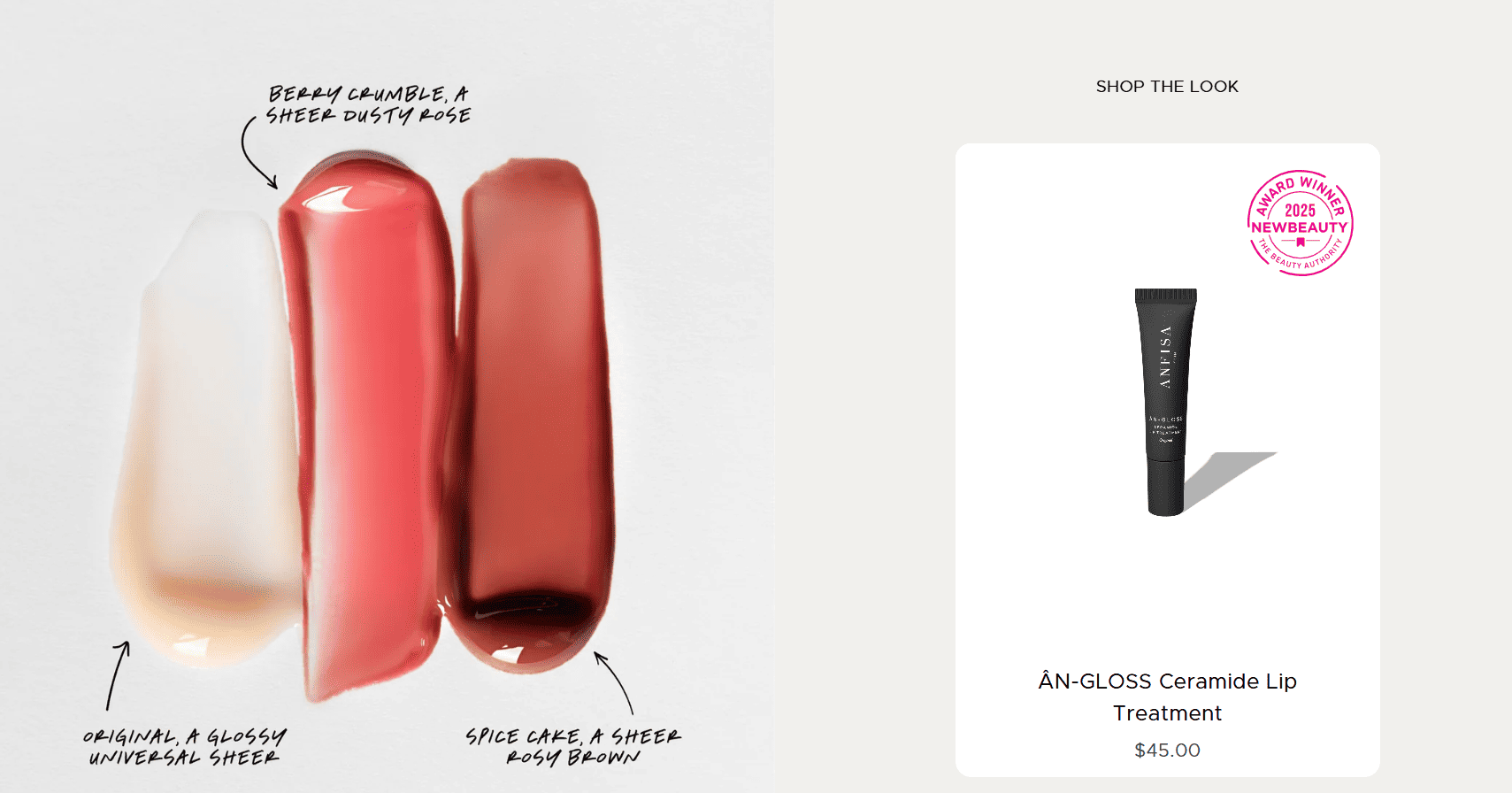
Awards and recognition highlight the achievements your brand has earned from industry bodies, award committees, or trusted institutions.
They help customers feel secure knowing your brand has been acknowledged as one of the best in its field.
Businesses place awards and recognition badges on homepages, landing pages, pricing pages, and press sections to reinforce authority and trust.
20. Community proof
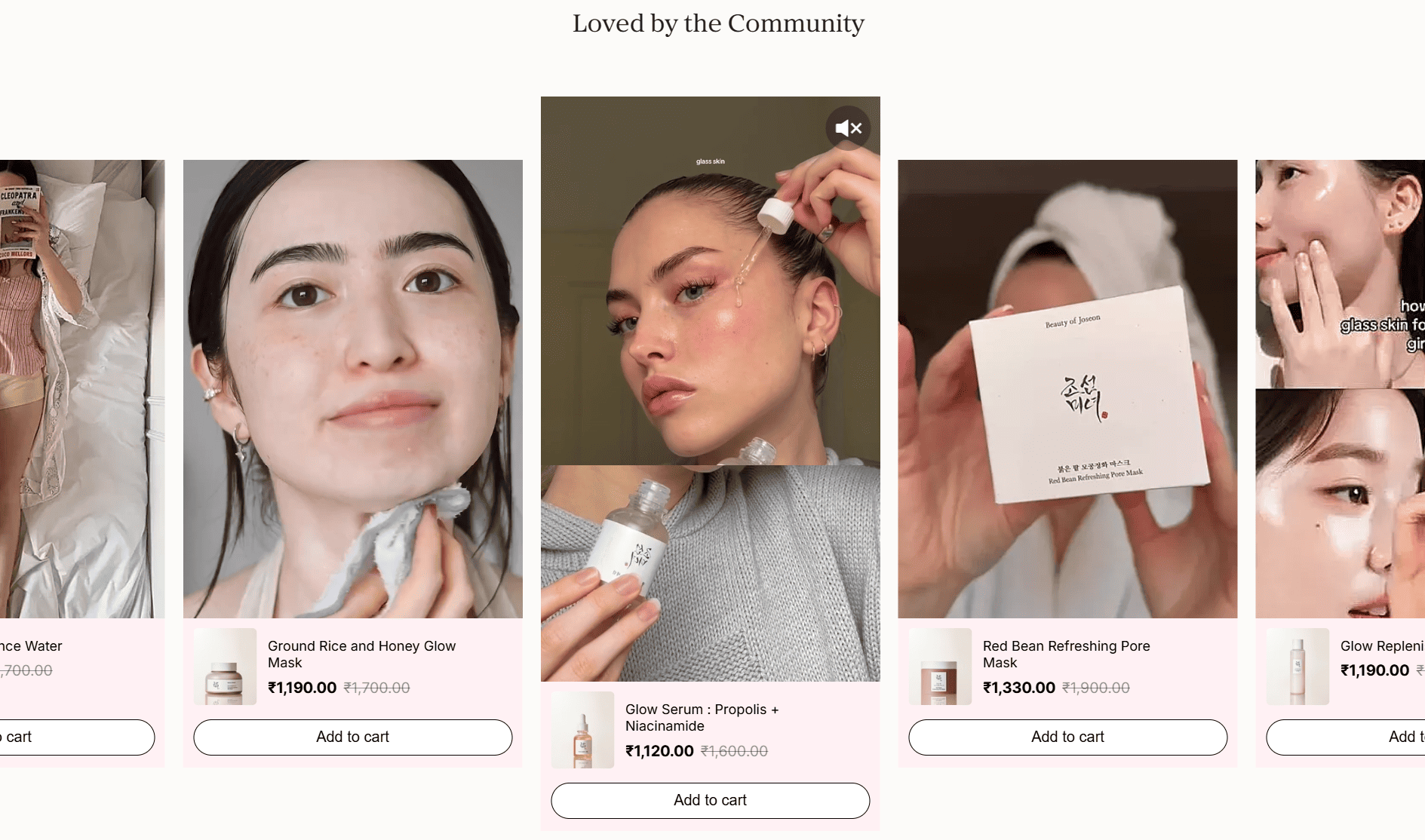
Community proof showcases the presence of an active group of users, fans, or customers who engage with your brand. It can be shown through social walls, live events, blogs, or online groups such as Slack communities.
It helps potential buyers feel connected and reassured by seeing a thriving community that supports, discusses, and uses your product.
Brands highlight community proof on homepages, product pages, and landing pages to demonstrate that customers are part of a trusted, supportive network.
21. Before & after results
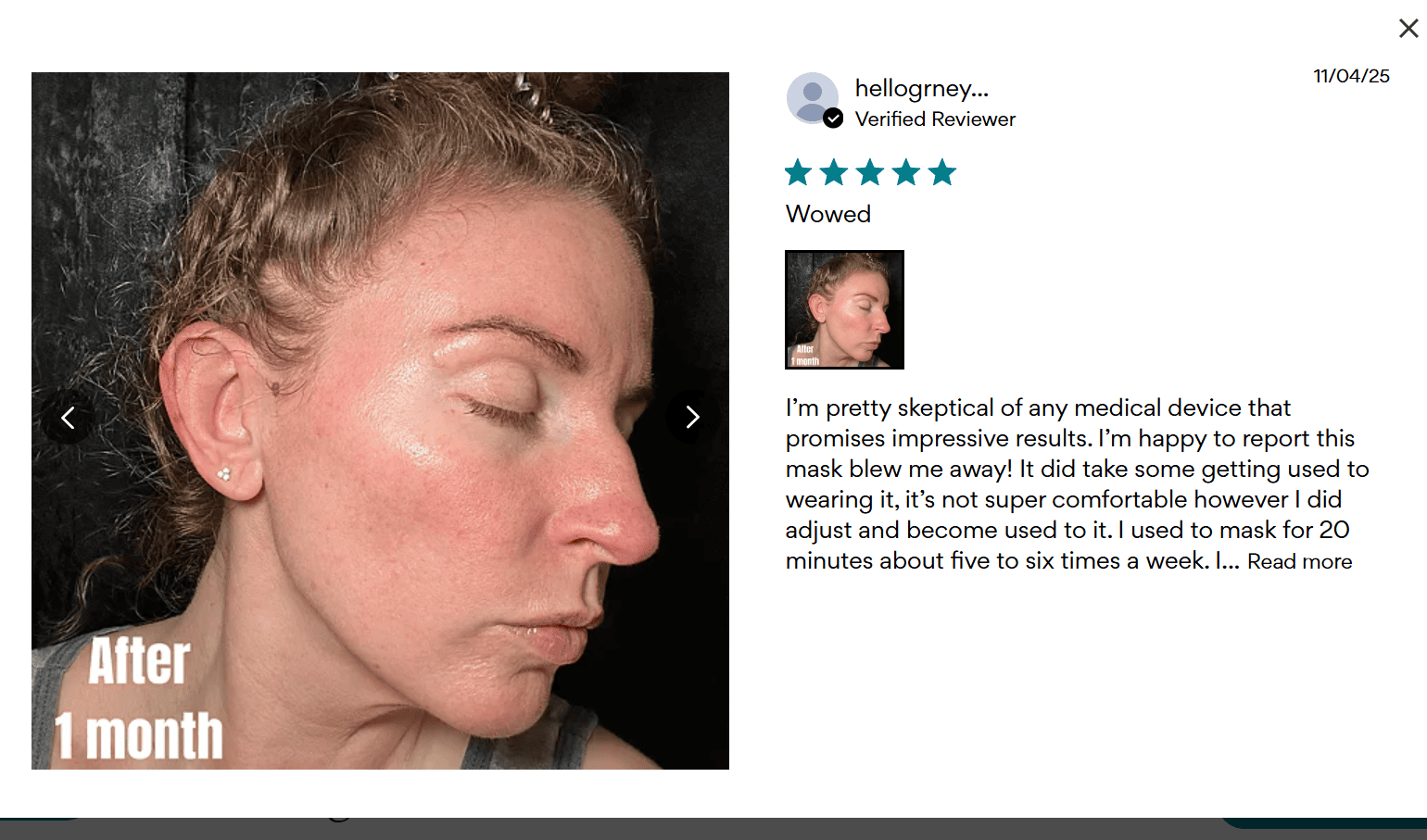
Before-and-after results are visual comparisons that show the transformation a customer experiences after using your product.
These results are usually presented through photos, videos, or short clips submitted by customers or created by the brand. Seeing real transformation builds trust and reduces hesitation.
Brands typically display before-and-after visuals on product pages, landing pages, social media, and ads to highlight real, visible outcomes.
22. Customer success metrics

Customer success metrics are data-backed outcomes shared by brands to highlight how well the product performs. These include metrics such as customer satisfaction scores, improvement percentages, ROI gains, and success rates achieved after using the product.
These metrics work because they provide measurable proof, helping potential customers evaluate the impact more objectively.
Businesses usually showcase customer success metrics on landing pages, pricing pages, case study sections, and onboarding emails.
23. Product usage statistics

Product usage statistics showcase how actively customers use your product. These include metrics such as total users, number of activities completed, items sold, and daily/monthly usage volume.
These statistics help customers understand the product's popularity and reliability at scale. High usage signals that many people trust the brand, making new visitors feel more confident about choosing it.
Brands display product usage stats on homepages, hero sections, app dashboards, and marketing pages to quickly communicate credibility.
24. Waiting lists & demand indicators
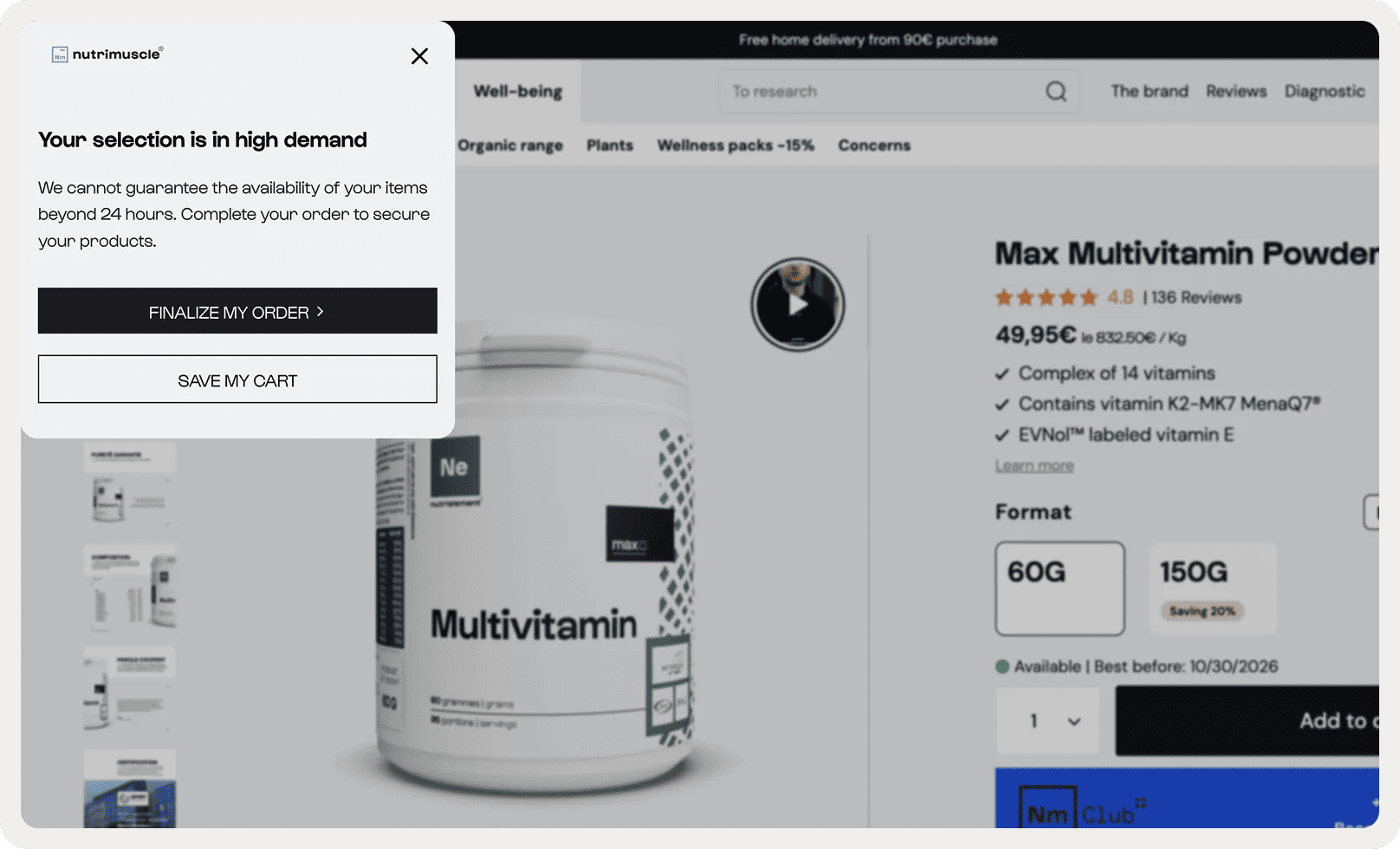
Waiting lists and demand indicators show how many people are interested in or currently engaging with your product.
When potential customers see that others are waiting or buying quickly, it reassures them that the product is valuable and trusted.
Brands use waiting lists and demand indicators on pre-launch pages, product launch announcements, checkout pages, and email campaigns.
25. Product effectiveness stats
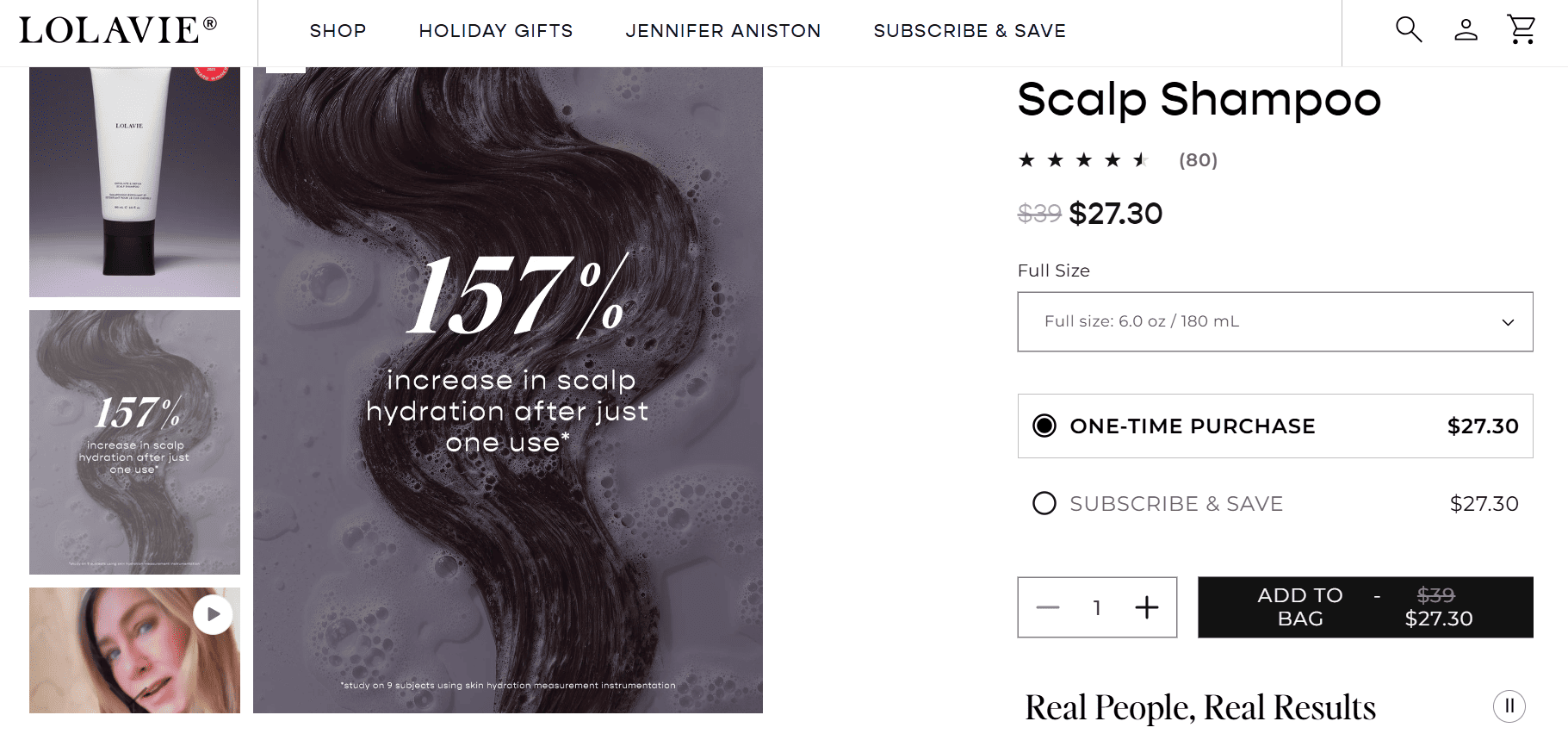
Brands share product effectiveness stats, data-driven insights that showcase a product's performance based on customer surveys, lab results, or performance testing.
These stats often include percentages such as “92% of users saw results in 7 days” or “85% experienced improved hydration after the first use.”
They help potential customers quickly understand the product's proven benefits through measurable outcomes.
Brands usually display product effectiveness stats on product pages, landing pages, and comparison charts to provide fast, credible validation during the decision-making stage.
26. Bestseller sections

Bestseller sections highlight the most popular and frequently purchased products on your website. These sections are usually labeled as “Bestsellers,” “Top Picks,” or “Most Loved” and are curated based on real sales data and customer demand.
When visitors see certain items consistently selling well, it acts as social proof that these products are trusted and widely chosen.
Brands typically display bestseller sections on homepages, category pages, and product recommendation areas to guide customers toward high-performing items.
How to integrate social proof on your website?
Use a social aggregator tool to embed social feeds on your website, at events, and in digital signage.
Flockler offers easy workflows for adding social feeds from multiple social and content platforms with built-in analytics, content moderation, customization, and a UGC rights management tool.
Here is how to add social proof with Flockler:
Step 1: Create a Flockler account or sign up for our 14-day free trial, which offers access to all features with no credit card required.
Step 2: Connect your social platform from which you want to collect social proof. Flockler supports 13 social platforms.
Enter the hashtag/keyword or handle name to collect social proof posts.
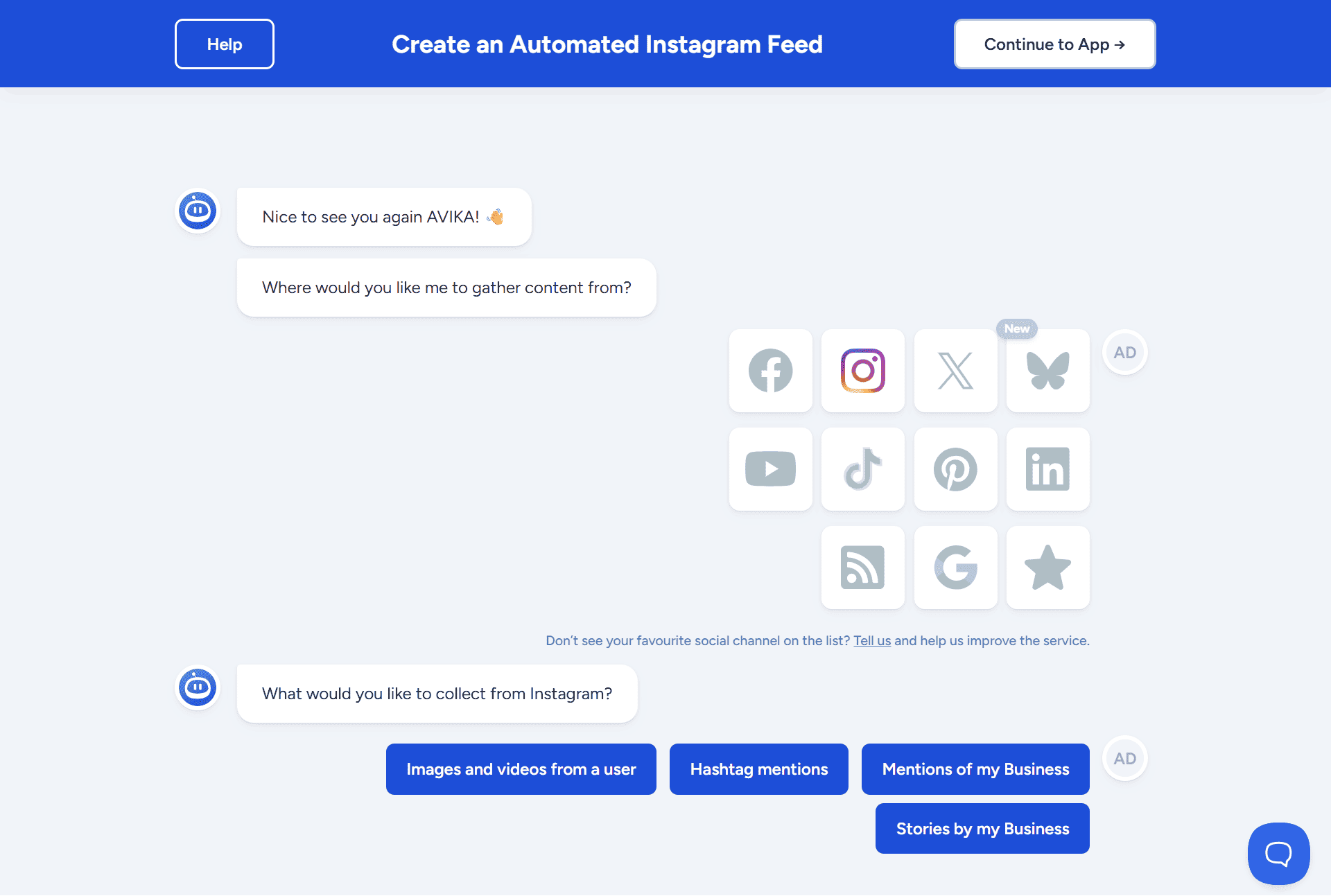
Step 3: Add moderation for your embedded social feeds. Flockler offers:
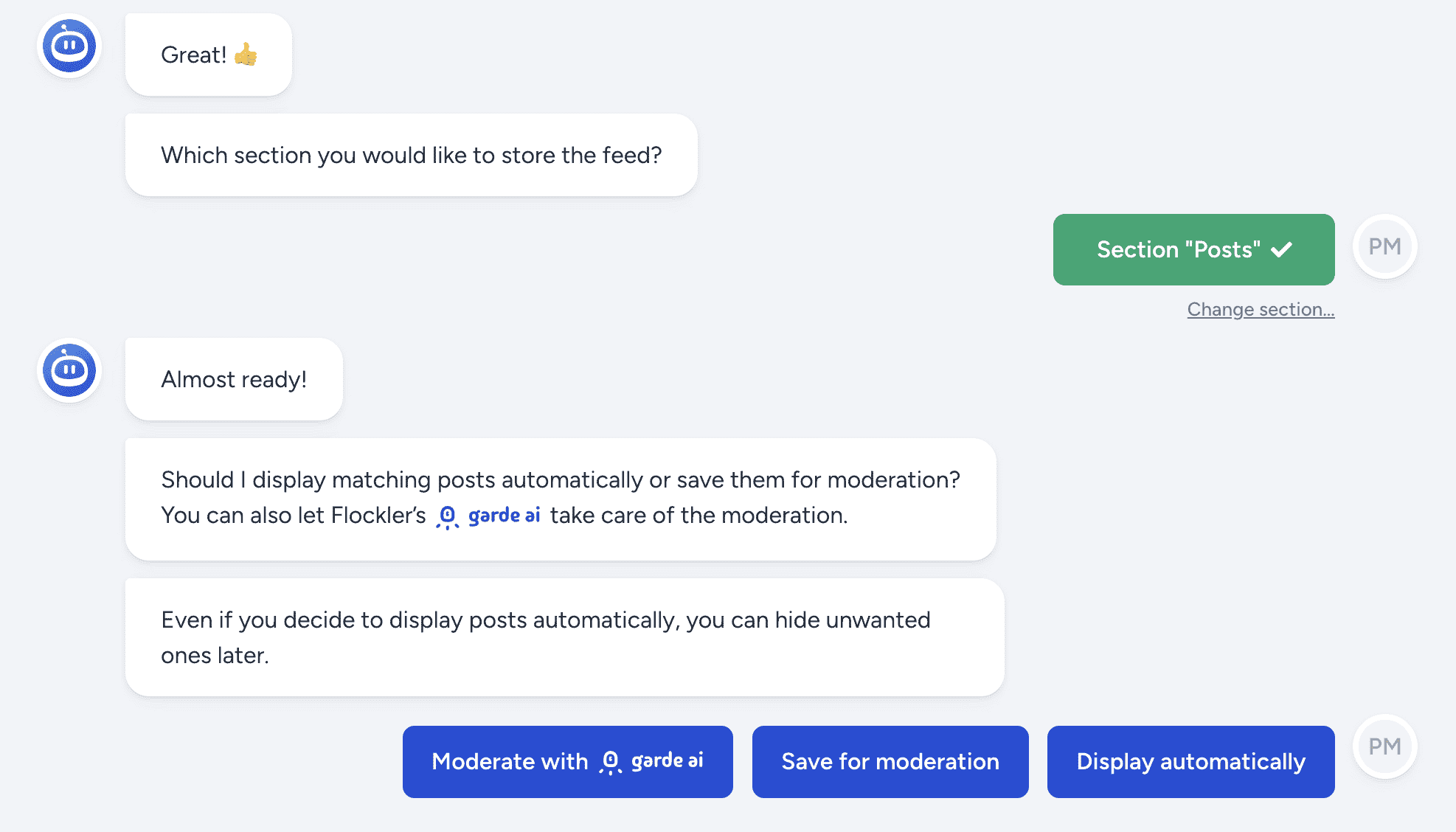
- Manual moderation: Requires your approval every time before posts go live.
- Automated moderation: Automatically refreshes your embedded wall content every 10 to 15 minutes.
- AI moderation: Flockler’s Garde AI removes any off-brand posts from your social wall.
Step 4: Add layouts to your social feeds from Grid, Carousel, Social Walls, or PowerPoint. Flockler also offers custom CSS for deeper customizations.
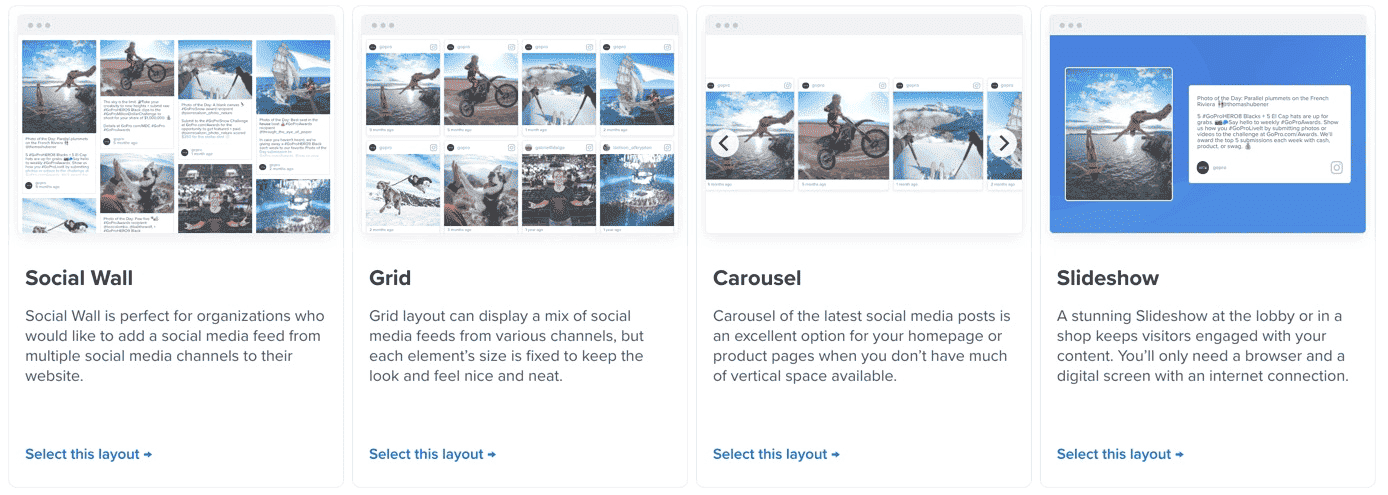
Step 5: Copy your auto-generated embed code and paste it into your website CMS.
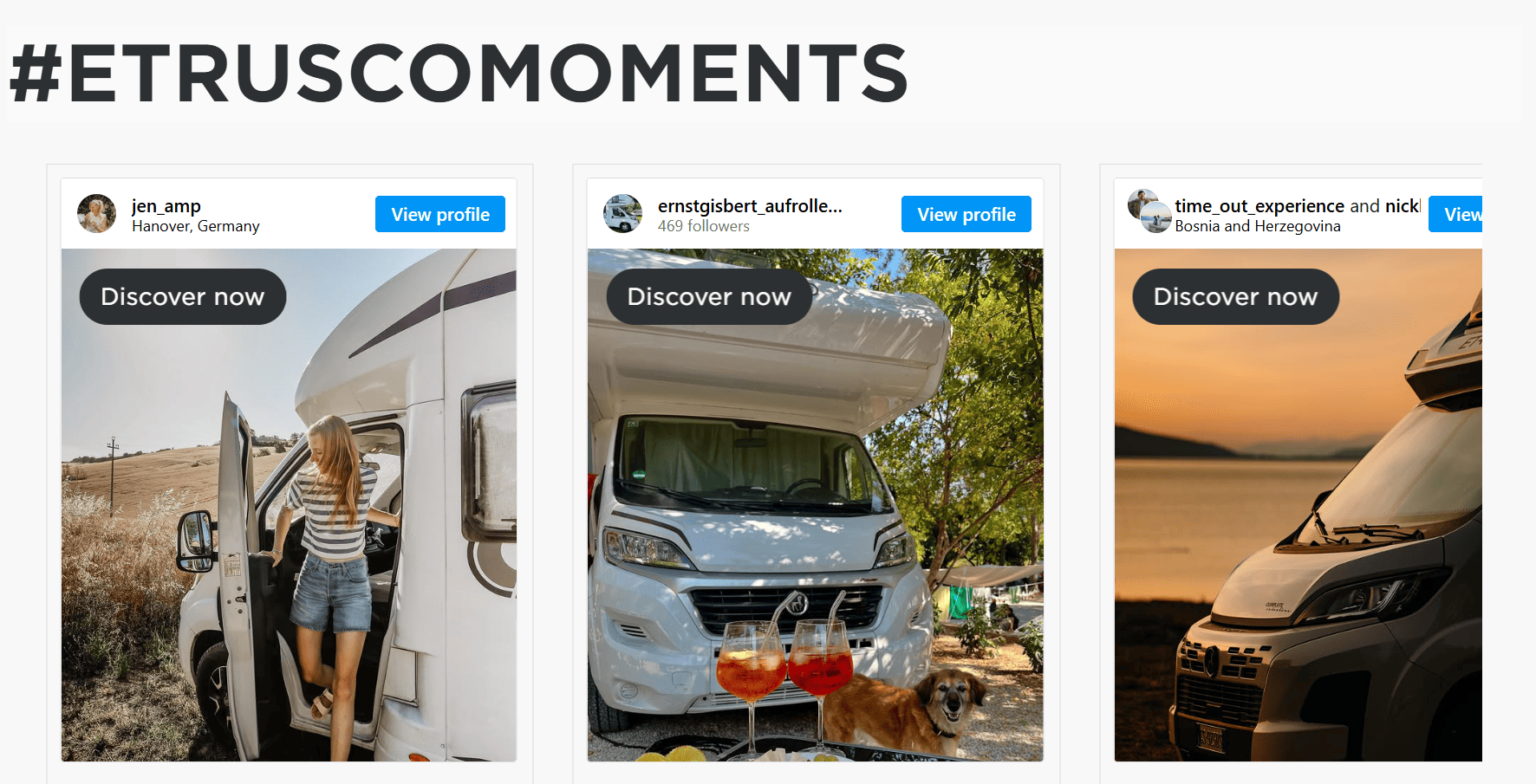
Add social proof to your WordPress website
To embed social proof on WordPress using Flockler, you require a business subscription on WordPress.com.
Embed Instagram Feeds using the WordPress Block Editor
- Open the post/page in WordPress where you want the Instagram feed.
- Click (+) Add Block and search for Custom HTML.
- Add the block and paste your Flockler embed code.
- Publish or update the page.
Embed Instagram Feeds using the WordPress Classic Editor
- Open the post/page in WordPress.
- Switch the editor to text mode.
- Paste your Flockler shortcode from the Display tab into the content area.
- Publish or update the page.
Add Instagram Feeds using the Elementor Editor
- Open or create a page in WordPress and click Edit with Elementor.
- Search for the HTML widget, then drag it onto the page.
- Paste your Flockler shortcode into the HTML Code field.
- Publish or update the page.
Sign up for Flockler’s 14-day free trial to embed social proof on your multiple webpages that helps visitors feel confident in their purchase decisions.
FAQs
What is social proof on a website?
Social proof is an experience shared by actual customers in the form of text, images, or videos to establish your brand's credibility. Businesses can embed social media posts, influencer collaborations, social sharing buttons, testimonials, and star ratings on the website to display social proof.
What is a social proof example?
There are more than 25 types of social proof that marketers can embed on multiple digital touchpoints, such as websites, emails, or in-store screens. Common social proof examples include reviews, star ratings, UGC, social media walls, social media mentions, trust badges, certificates, and customer success metrics.
What are the best tools for showcasing social proof on a website?
Businesses can use social media aggregator tools to embed social proof posts on different webpages. Flockler is an advanced aggregator tool that offers a complete toolkit, including support for 13 social platforms, engaging layouts, built-in analytics, and a UGC rights management tool.
.png)
